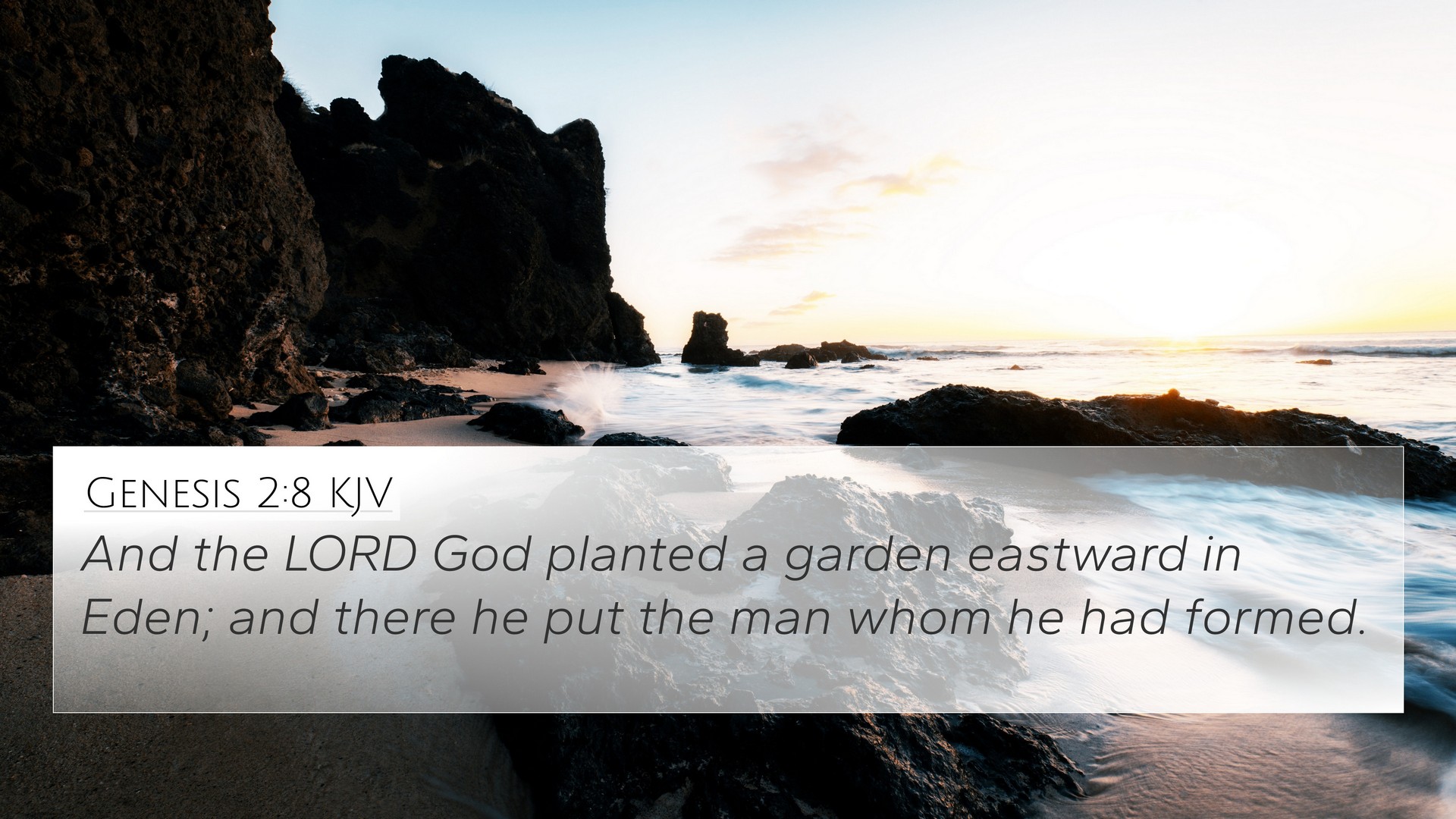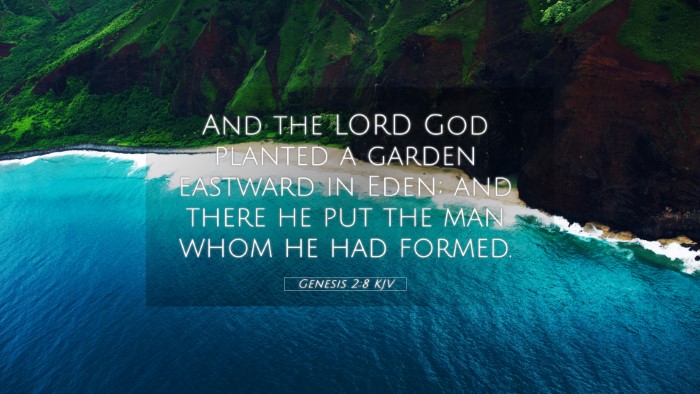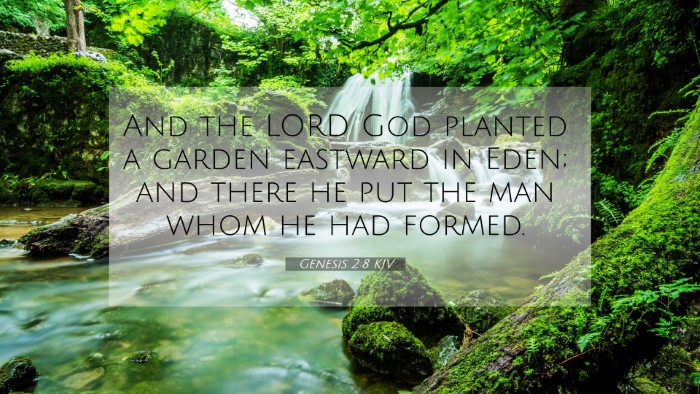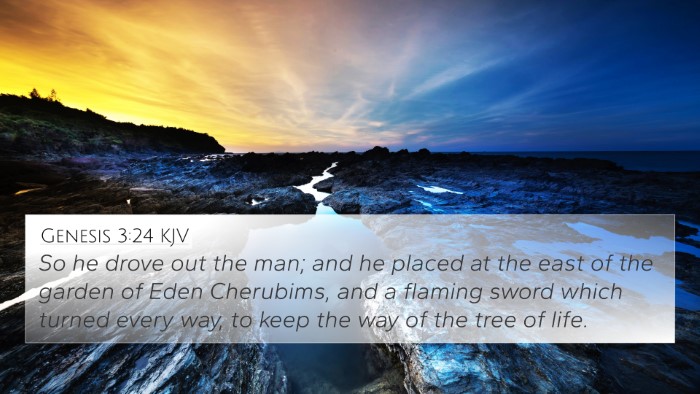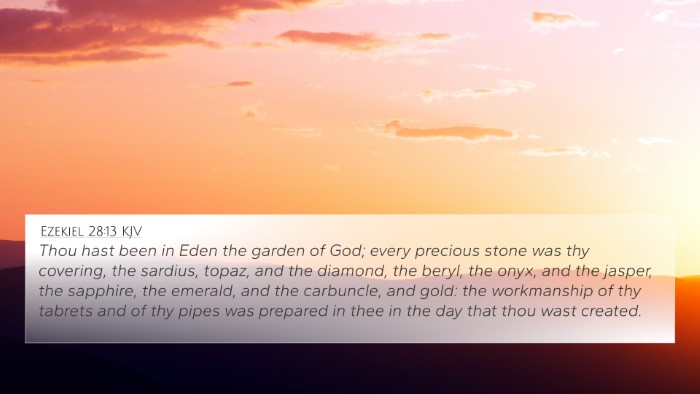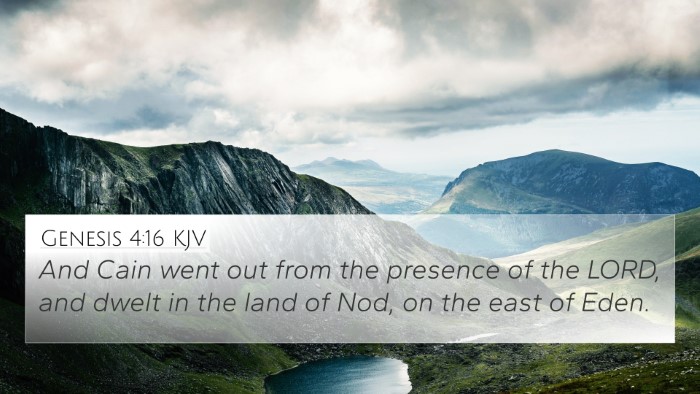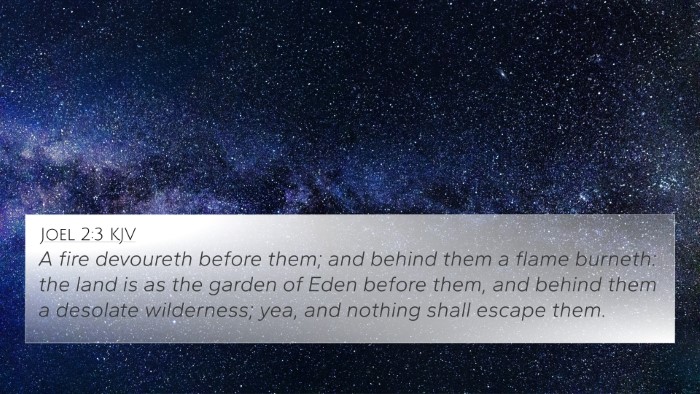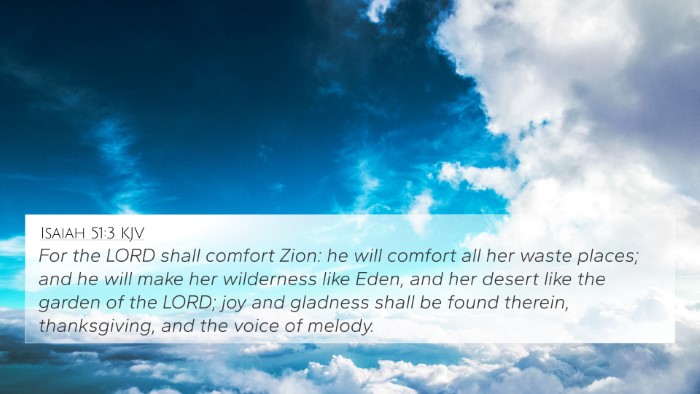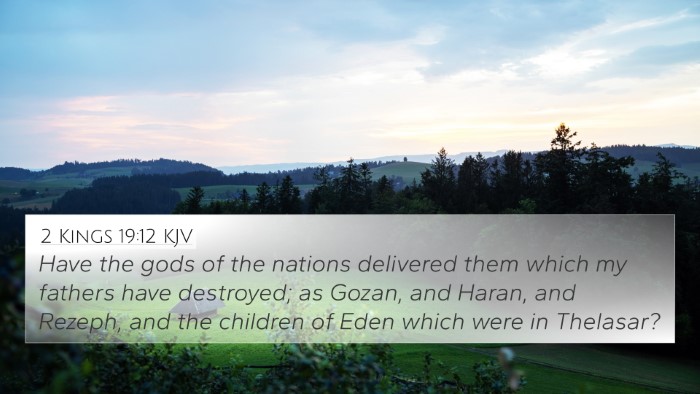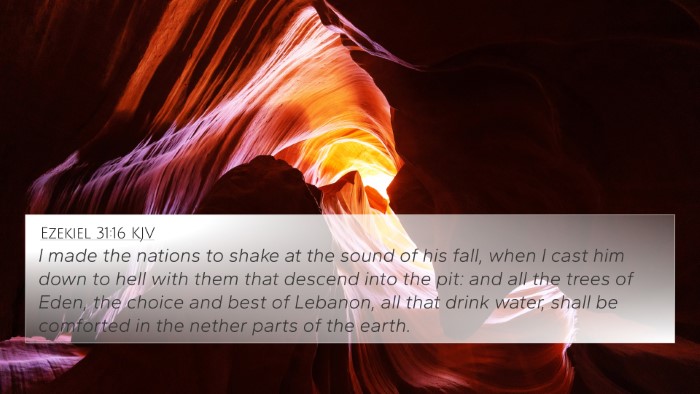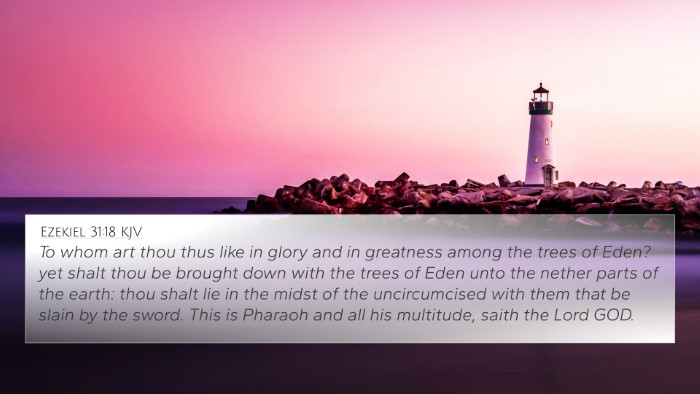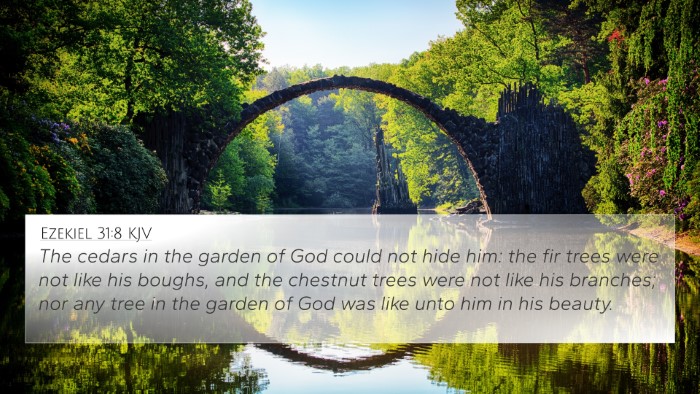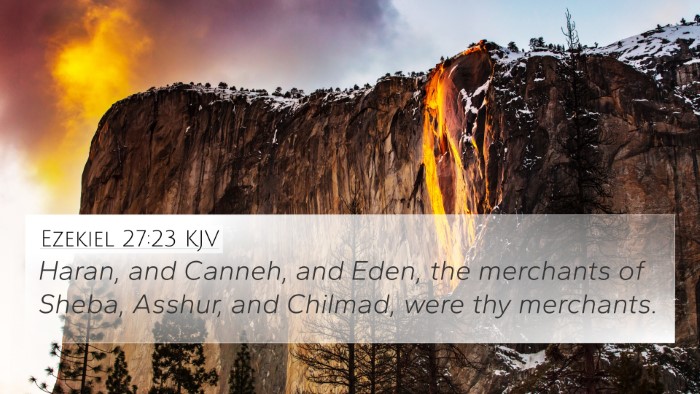Understanding Genesis 2:8
Genesis 2:8 states, "And the LORD God planted a garden eastward in Eden; and there he put the man whom he had formed." This verse is pivotal in the biblical narrative, portraying the establishment of the Garden of Eden where humanity begins its journey. Various public domain commentaries provide profound insights into the implications of this verse.
Contextual Significance
Genesis 2:8 serves as a transition from the creation account in Genesis 1 to a more detailed exploration of humanity's beginnings in Genesis 2.
Matthew Henry emphasizes that Eden represents the perfect environment God created for humanity, reflecting divine provision and care.
Albert Barnes notes the significance of the garden's placement, "eastward in Eden." The east often symbolizes new beginnings, aligning with God’s plan for humanity's growth and flourishing within His presence.
Theological Implications
This verse underscores the intimate relationship God seeks with humankind, illustrated by His active role in creating a special dwelling place for Adam. Adam Clarke highlights that this "garden" not only served as a physical locale but also as a spiritual setting where humans could dwell in communion with God.
Symbolism of the Garden
The garden itself becomes a rich symbol throughout the scriptures. It signifies paradise, purity, and the initial state of harmony between God and humanity.
Henry refers to the abundance and beauty of the garden as manifestations of God’s grace and goodness.
Cross-Referencing Biblical Texts
Understanding Genesis 2:8 benefits from cross-references that illuminate its themes and connections with other Bible verses. Here are key related verses that offer additional context:
- Genesis 1:31: Highlights God's assessment of creation as "very good" and sets the stage for understanding the perfection of Eden.
- Isaiah 51:3: References God’s comfort over Zion, drawing parallels to Eden's beauty and restoration.
- Revelation 2:7: Links the paradise of God with the promise of eternal life to those who overcome.
- Genesis 2:15: Discusses Adam's role in tending the garden, emphasizing the value of stewardship.
- Psalms 1:3: Compares the righteous to a tree planted by rivers of water, mirroring Eden's fertility.
- Ezekiel 28:13: Symbolizes Eden as a garden of God, enriching the understanding of its paradise status.
- John 15:1-2: Jesus describes Himself as the true vine, linking believer's fruitful existence to Eve's perfection before the fall.
- Matthew 26:36: Gethsemane as a modern-day garden reflecting the ongoing relationship and struggle with God.
- 1 Corinthians 15:22: Discusses redemption through Christ, drawing a parallel to Adam's role as the first man.
- Hebrews 11:16: Speaks of a heavenly city as a new Eden, signifying hope and restoration.
Conclusion
Genesis 2:8 is more than a historical account; it is rich with theological implications, symbolisms, and connections that resonate throughout the entirety of the Bible.
Utilizing cross-referencing biblical texts expands our understanding, allowing us to see the deeper narrative of God’s relationship with humanity and His design for creation.
For further insights into how to find cross-references in the Bible, consider utilizing tools such as a bible concordance or exploring a bible cross-reference guide. These resources can facilitate a comprehensive study and aid in identifying connections between the Old and New Testament, enhancing your understanding of scriptural themes and narratives.
